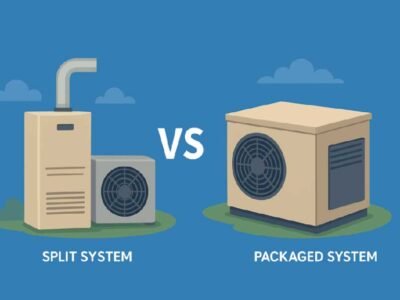Introduction
Employee benefits have emerged as a decisive factor in the success and growth of businesses, particularly in the battle for skilled professionals. The modern employment landscape has evolved rapidly, with workers now placing significant weight on the quality and diversity of benefits offered by potential employers. Yet, many small and medium-sized businesses (SMBs) struggle to compete with larger enterprises in terms of what they can offer. Limited budgets, smaller teams, and minimal purchasing power often mean that SMBs cannot offer the enticing healthcare, retirement, or wellness packages that job seekers expect. For organizations seeking creative solutions to stay competitive, it’s crucial to explore your HR options to elevate employee satisfaction and retention without straining resources. Discovering new ways to enhance benefit offerings can be the difference between securing top talent and losing candidates to corporate giants.
A Professional Employer Organization (PEO) can bridge this gap, delivering access to comprehensive benefits packages, streamlining administrative processes, and ensuring compliance—all at an affordable scale for SMBs. This partnership not only addresses immediate workplace needs but also fortifies long-term retention and satisfaction strategies for a business. By integrating the extensive knowledge, resources, and bargaining power of a PEO, smaller companies can implement the kinds of benefit structures that have traditionally been out of reach, securing their place as employers of choice within their industries.
What Is a PEO?
Simply put, a PEO is a third-party partner that forms a co-employment relationship with client companies. Under this arrangement, the PEO assumes specific employer responsibilities and liabilities, particularly in relation to human resources functions. This unique arrangement delegates HR responsibilities such as payroll, employee benefits, and regulatory compliance to the PEO, freeing internal teams to focus on core business activities. You can learn more about how PEOs operate and support businesses at Business News Daily. Ultimately, PEOs give SMBs leverage, efficiency, and the expertise necessary to thrive in a competitive environment.
In a landscape of shifting regulations and rising employee expectations, managing these HR functions internally can become overwhelming. For leaders who are not HR experts, the risk of falling out of compliance or missing an essential regulatory update can be a persistent challenge. By tapping into the knowledge and scale of a PEO, companies can not only meet regulatory standards but often exceed the benefit offerings of much larger rivals. PEOs are constantly adapting to regulatory changes, ensuring that their client companies remain protected from costly legal pitfalls and the administrative workload associated with staying current on employment law.
Advantages of Partnering with a PEO
Access to Comprehensive Benefits
The collective bargaining power of a PEO allows even small organizations to access top-tier employee benefits. Rather than negotiating as a single small business—a position of limited bargaining power—companies bundled under a PEO umbrella can secure health coverage, dental and vision insurance, 401(k) plans, and even wellness programs typically reserved for larger corporations. PEOs pool employees from many smaller businesses together, giving them the same buying power as much larger organizations. This ability to offer comprehensive packages can dramatically enhance recruiting efforts and overall workplace satisfaction. Employees increasingly expect not only basic health coverage but also specialty programs, such as mental health support, family leave options, and lifestyle benefits. PEOs make it possible for SMBs to compete in this new benefits-driven era. For example, through a PEO, a local café could offer its staff the same Ingram Insurance Group health plan options that a major tech firm provides, thereby leveling the playing field in attracting and retaining quality employees.
Cost Efficiency
Benefits administration is expensive and time-consuming. The individual costs to manage health insurance, retirement plans, and other benefits can be prohibitive for smaller teams without dedicated HR staff. PEOs achieve substantial cost savings through the pooling of resources and enhanced administrative efficiency. They manage benefits enrollment, communication with providers, paperwork, and problem-resolution, freeing business owners from these essential but time-consuming tasks. Reducing the per-employee cost of offering benefits means that more resources can be invested in business growth, innovation, and employee development, rather than being consumed by HR overhead. In many cases, companies find that the reduced risk of compliance problems and the increased operational focus gained by offloading HR tasks is just as valuable as the direct financial savings.
Regulatory Compliance
Staying compliant with employment regulations is a full-time job. Local, state, and federal employment laws are constantly evolving, and it can be difficult for SMBs to keep pace without up-to-date legal expertise. PEOs employ seasoned HR and legal professionals who stay abreast of changes in laws at the federal, state, and local levels. This ensures their clients avoid fines, litigation risks, and reputational damage that can accompany overlooked compliance issues. PEO compliance teams quickly implement new requirements—such as changes to paid leave laws, reporting rules, or healthcare mandates—so business owners avoid the worry and complexity of regulatory updates. The result is a less risky and more stable work environment for everyone involved, providing peace of mind to both company leadership and team members.
Enhancing Employee Satisfaction and Retention
When employees see that an organization is invested in their well-being—through quality health coverage, robust retirement options, and support for work-life balance—they are significantly more inclined to stay. Forward-thinking companies recognize that retention is not just about salary, but about creating a culture where employees feel valued and protected. With reduced turnover comes a more cohesive and engaged team, as well as lower expenses related to rehiring and retraining. Employee satisfaction has a direct impact on everything from workplace morale to customer experience. According to a recent Forbes article, strong benefits packages are one of the most critical factors in retaining high-quality talent across all industries. When benefits are robust and easily accessible, companies see measurable improvements in productivity, loyalty, and overall job satisfaction.
Conclusion
For SMBs aiming to remain competitive in today’s job market, the limitations of size and resources need not be obstacles. The strategic use of a PEO partnership ensures that world-class benefits administration, robust HR support, and ongoing compliance guidance are accessible, even for the smallest employers. By engaging with a PEO, companies can enhance their benefits offerings, streamline HR operations, and ensure compliance—all while reducing costs. This positions SMBs to attract and retain high-quality talent without requiring significant internal resources or expertise devoted to HR. It’s a strategic move that supports business growth and, most importantly, keeps employees motivated and loyal in the long term. In a world where benefits can significantly impact an organization’s ability to succeed, partnering with a PEO levels the playing field for SMBs, allowing them to compete on an even footing with their much larger competitors.












